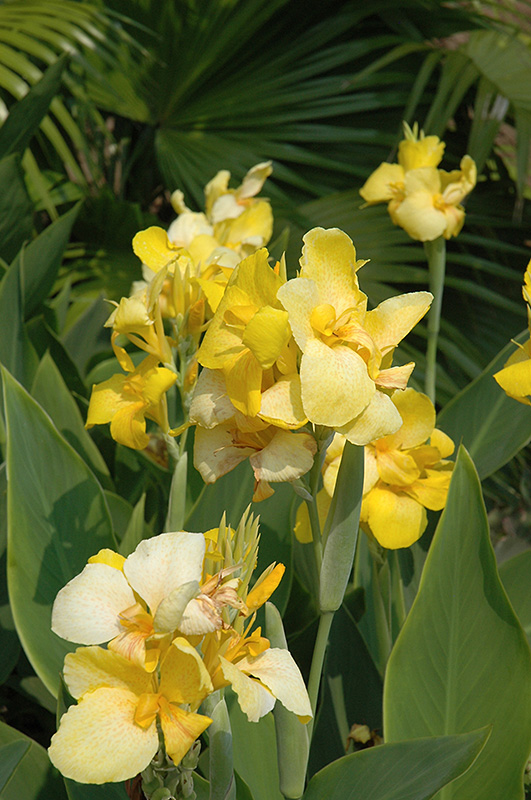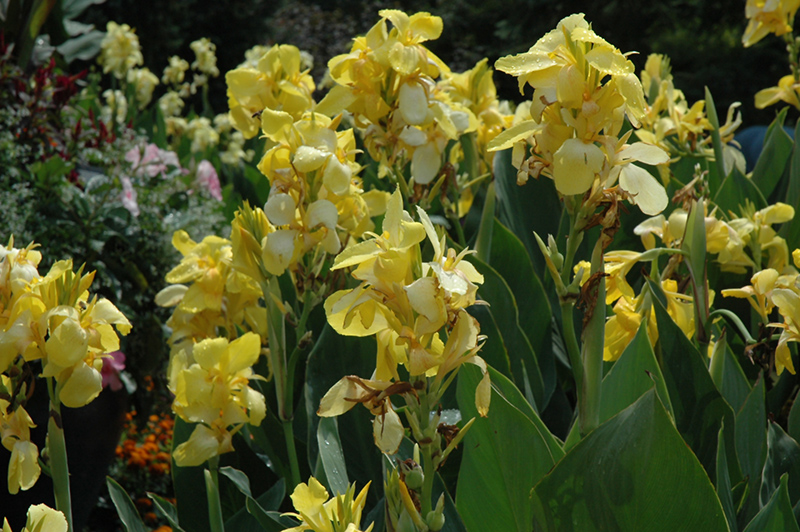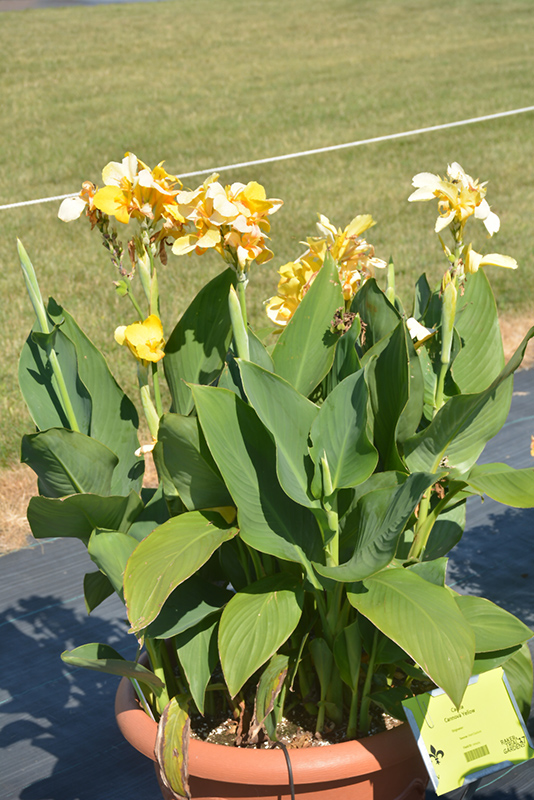Search Our Plants
Cannova® Yellow Canna
Canna 'Cannova Yellow'
Height: 4 feet
Spread: 20 inches
Sunlight:
![]()
Hardiness Zone: (annual)
Group/Class: Cannova Series
Brand: Takii Seed
Description:
A tropical look in the garden with huge green leaves; stunning, large yellow blooms on top of this medium height variety; perfect for borders or as an accent; perennial only where roots don't freeze
Ornamental Features
Cannova® Yellow Canna features bold spikes of yellow flag-like flowers at the ends of the stems from mid summer to early fall. Its attractive large glossy pointy leaves remain green in color throughout the year.
Landscape Attributes
Cannova® Yellow Canna is an herbaceous evergreen tropical plant with a rigidly upright and towering form. Its wonderfully bold, coarse texture can be very effective in a balanced garden composition.
This plant will require occasional maintenance and upkeep, and is best cleaned up in early spring before it resumes active growth for the season. It is a good choice for attracting hummingbirds to your yard. Gardeners should be aware of the following characteristic(s) that may warrant special consideration;
- Spreading
Cannova® Yellow Canna is recommended for the following landscape applications;
- Accent
- Mass Planting
- General Garden Use
- Container Planting
Planting & Growing
This plant is native to the tropics and prefers growing in moist environments with evenly warm conditions all year round. In our climate, it is usually grown as an outdoor annual in the garden or in a container. If you want it to survive the winter, it can be brought in to the house and provided with special care, and then returned to the garden the following season. In its preferred tropical habitat, it can grow to be around 4 feet tall at maturity, with a spread of 20 inches. However, when grown as an annual or when overwintered indoors, it can be expected to perform differently, and its exact height and spread will depend on many factors; you may wish to consult with our experts as to how it might perform in your specific application and growing conditions.
This plant should only be grown in full sunlight. It requires an evenly moist well-drained soil for optimal growth, but will die in standing water. It is not particular as to soil pH, but grows best in rich soils. It is highly tolerant of urban pollution and will even thrive in inner city environments, and will benefit from being planted in a relatively sheltered location. Consider applying a thick mulch around the root zone in winter to protect it in exposed locations or colder microclimates. This particular variety is an interspecific hybrid. It can be propagated by division; however, as a cultivated variety, be aware that it may be subject to certain restrictions or prohibitions on propagation.
Cannova® Yellow Canna is a fine choice for the garden, but it is also a good selection for planting in outdoor pots and containers. With its upright habit of growth, it is best suited for use as a 'thriller' in the 'spiller-thriller-filler' container combination; plant it near the center of the pot, surrounded by smaller plants and those that spill over the edges. It is even sizeable enough that it can be grown alone in a suitable container. Note that when growing plants in outdoor containers and baskets, they may require more frequent waterings than they would in the yard or garden. Be aware that in our climate, this plant may be too tender to survive the winter if left outdoors in a container. Contact our experts for more information on how to protect it over the winter months.
-- THIS IS A TROPICAL PLANT AND SHOULD NOT BE EXPECTED TO SURVIVE THE WINTER OUTDOORS IN OUR CLIMATE --
This Plant Finder tool is an online catalog representing many of the varieties that we carry over the course of the season, and is intended for informational purposes only. Inventory varies seasonally, so we cannot guarantee that every plant will be in stock at all times - please contact your nearest Platt Hill Nursery store for current availability. It does not include our entire inventory of plants, so be sure to visit us to see varieties that may not be represented on this list.



